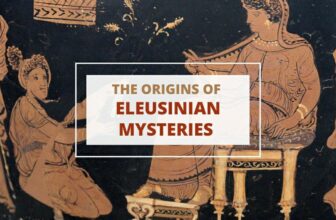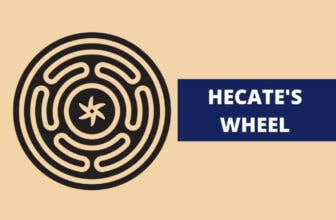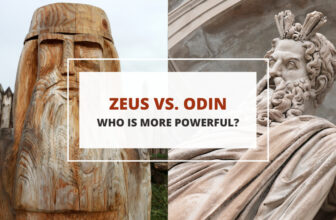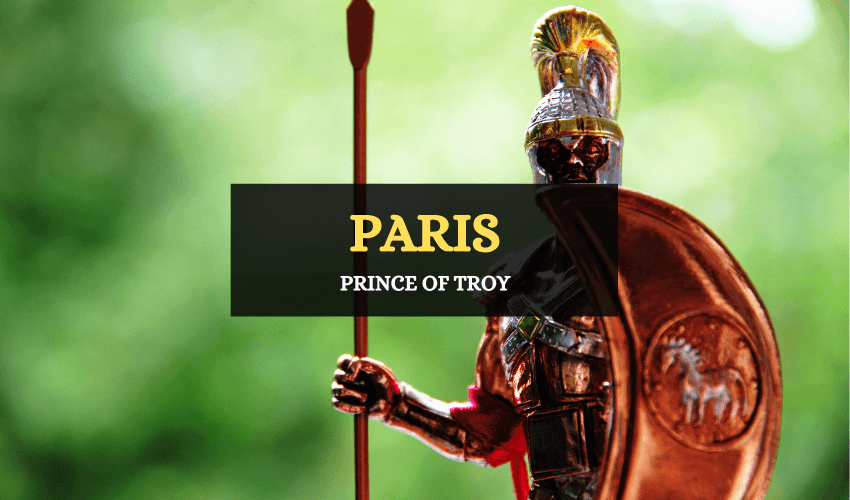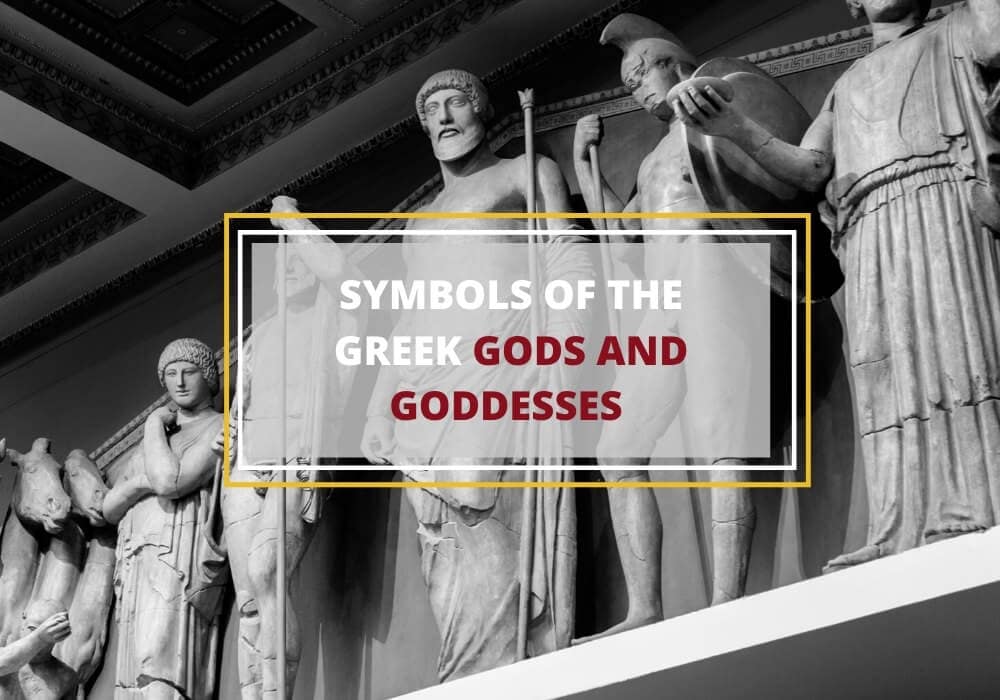
Table of Contents
There are many gods in ancient Greek and Roman mythology. However, the twelve Olympian gods were the most important of the pantheon of gods in ancient Greece. They were believed to reside on Mount Olympus, each god having their own backstory, interests, and personalities, and each representing some important ideals and concepts.
The gods were believed to lord over human destinies and would interfere directly in the lives of humans as they wished.
There is some disagreement on the exact list of the 12 gods, with some lists including Hestia, Hercules, or Leto, typically replacing Dionysos. Here’s a look at the standard list of the 12 Olympian gods, their significance, and their symbols. We’ve also included a few of the other important gods that sometimes make the list.
1. Zeus (Roman name: Jupiter)
God of the Skies
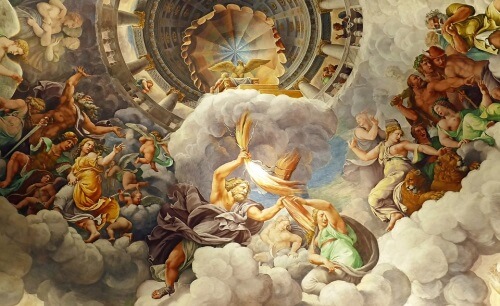
Chamber of the Giants by Giulio Romano, depicting Jupiter hurling thunderbolts
The most powerful of the gods, Zeus was the supreme deity and the King of the Gods. He is often called the father of both gods and men. Zeus was an amorous god and had many love affairs with mortal women and goddesses. Zeus ruled over the sky, weather, destiny, fate, kingship, and law and order.
His symbols include:
- Thunderbolt
- Eagle
- Bull
- Oak
2. Hera (Roman name: Juno)
Goddess of marriage and queen of the gods
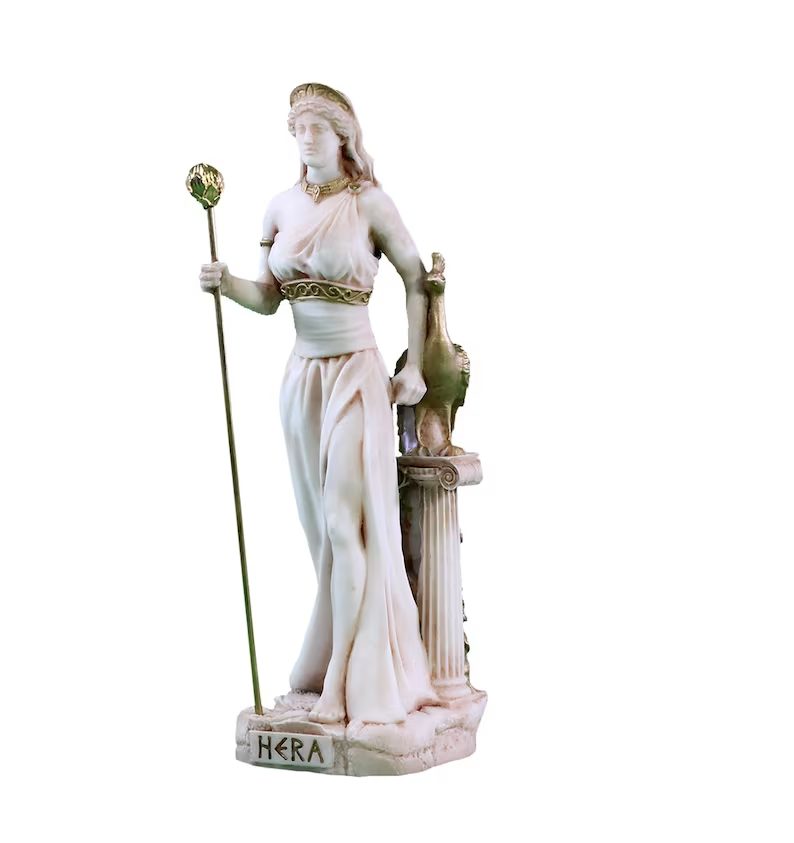
Hera is the wife of Zeus and the queen of the ancient Greek gods. As a wife and mother, she symbolized the ideal woman. Although Zeus was notorious for having many lovers and illegitimate children, Hera remained faithful to him even though she was jealous and vengeful. She was also vengeful against mortals who went against her.
Her symbols include:
- Diadem
- Pomegranate
- Cow
- Feather
- Panther
- Lion
- Peacock
3. Athena (Roman name: Minerva)
Goddess of wisdom and courage
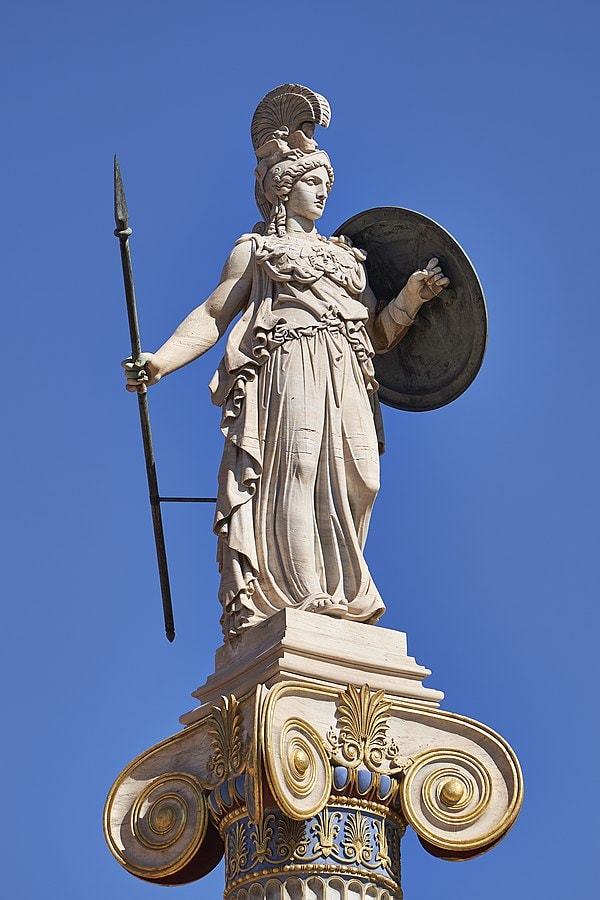
Athena was considered the protectress of many Greek cities, especially the city of Athens which was named in her honor. The temple of the Parthenon was built in Athena’s honor and continues to be an imposing and significant monument in the Acropolis of Athens. Unlike most of the other gods, Athena didn’t indulge in illicit relationships, remaining chaste and virtuous.
Her symbols include:
- Owl
- Olive tree
4. Poseidon (Roman name: Neptune)
God of the seas

Poseidon was a powerful god, ruler of the seas. He was the protector of seafarers and oversaw many cities and colonies. He was the chief god of many Hellenistic cities and in Athens, Poseidon was considered second only to Athena.
His symbols include:
- Trident
5. Apollo (Roman name: Apollo)
God of the arts
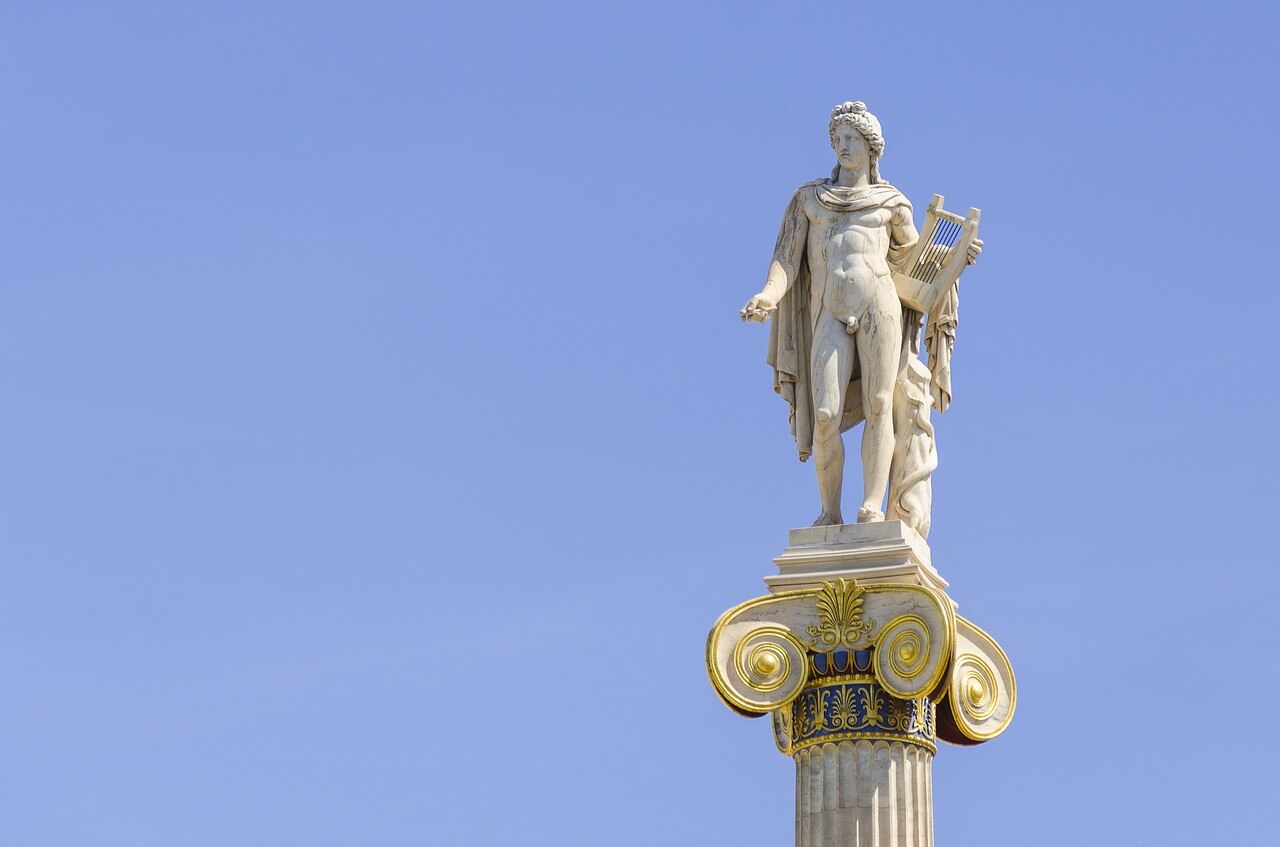
Apollo was the god of archery, the arts, healing, diseases and Sun and many more. He was the most beautiful of the Greek gods and also one of the most complex. He is the inventor of string music.
His symbols include:
- Lyre
- Python
- Raven
- Swan
- Bow and arrow
- Laurel wreath
6. Ares (Roman name: Mars)
God of war
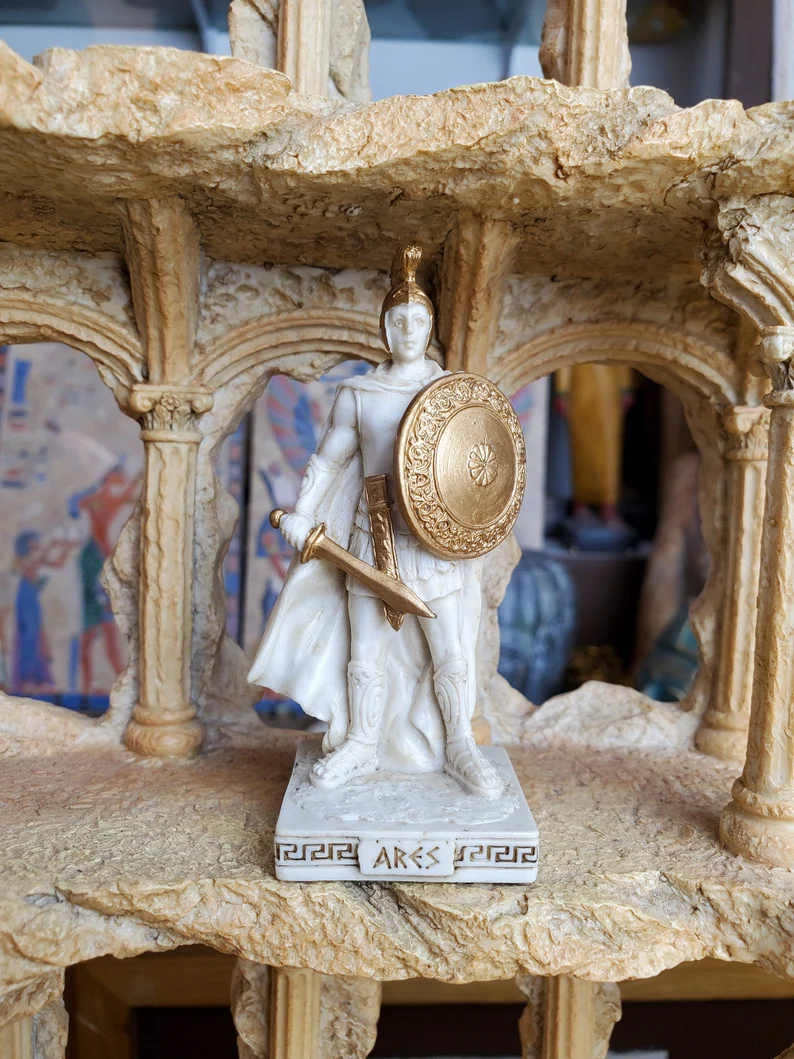
Ares is the god of war, and symbolizes the violent, brutal and physical aspects of war. He is a strong and powerful force, considered to be dangerous and destructive. This contrasts with his sister Athena, who is also a god of war, but uses strategy and intelligence in battle. The symbols that represent Ares are all related to war and animals. He was probably the most unpopular of the Greek gods.
His symbols include:
- Sword
- Shield
- Spear
- Helmet flaming torch
- Dog
- Vulture
- Boar
- Chariot
7. Demeter (Roman name: Ceres)
Goddess of harvest, agriculture, fertility and sacred law
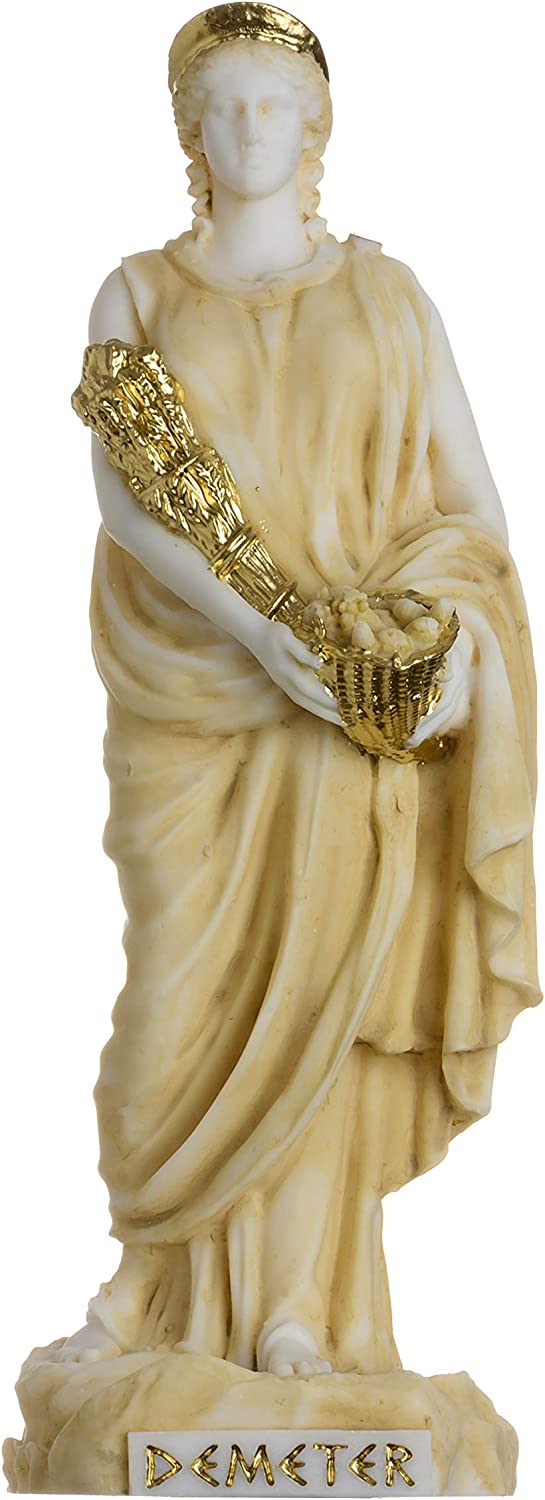
Demeter is one of the oldest and most important of the Greek gods. As the god of harvest and farming, she ensured the fertility and vegetation of the world. When her daughter, Persephone was taken by Hades to be his bride in the underworld, Demeter’s search for her resulted in the neglect of the earth and terrible famine and drought.
Her symbols include:
- Cornucopia
- Wheat
- Bread
- Torch
8. Artemis (Roman name: Diana)
Goddess of hunting, wild nature and chastity
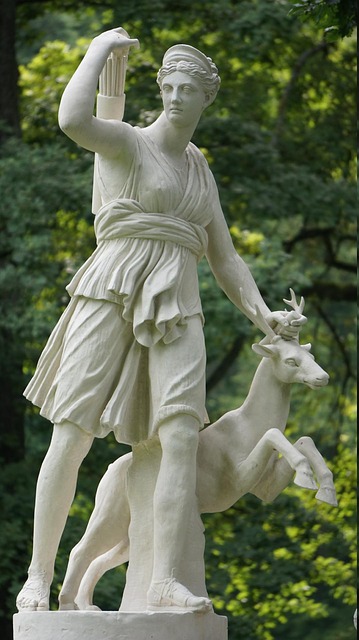
Artemis was viewed as the patron of girls and protectress of women during childbirth. She’s one of the most respected of the Greek gods, and her temple at Ephesus was one of the Seven Wonders of the Ancient World. She remained a maiden and swore never to marry, making her a symbol of chastity and virtue. She was worshipped throughout ancient Greece.
Her symbols include:
9. Aphrodite (Roman name: Venus)
Goddess of love, beauty and sexuality
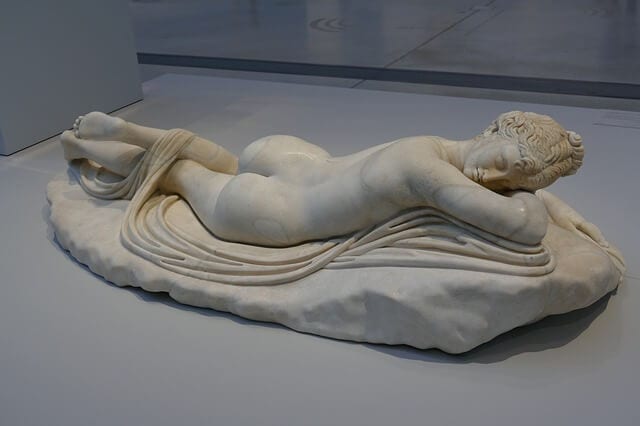
Aphrodite was a warrior goddess and has often been considered a symbol of female beauty. She was the patron and protector of seafarers, courtesans, and prostitutes. Aphrodite could entice gods and men with her beauty and flirtatiousness and had many affairs. The word aphrodisiac, which means a food or drink that causes sexual desire, originates from the name Aphrodite.
Her symbols include:
10. Dionysos (Roman name: Bacchus)
God of wine, theater, fertility and merriment
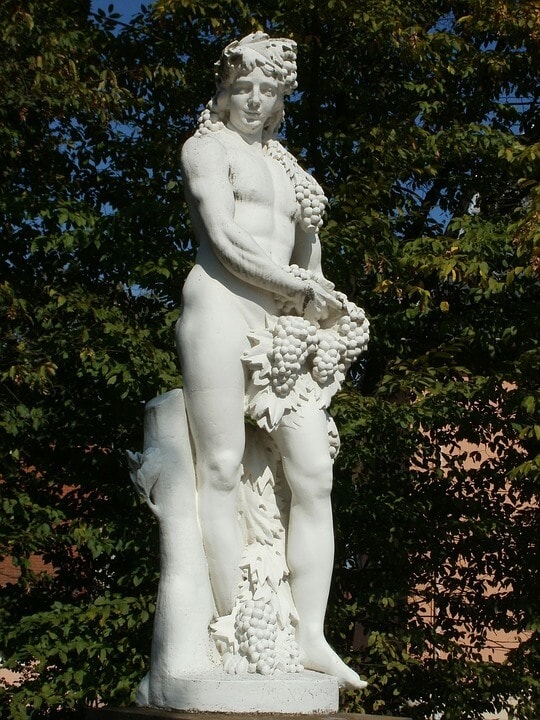
Dionysos was the god of wine, fertility, theater, ecstasy and fruitfulness. He was a popular figure in Greek mythology, noted for his unusual birthing and upbringing. Dionysos is semi-divine as his mother was a mortal. He is the only Olympian god with a mortal mother and so was raised on a mythical mountain called Mount Nysa. He is often viewed as the ‘liberator’ as his wine, ecstatic dance and music freed his followers from the restraints of self and society.
His symbols include:
- Grapevine
- Chalice
- Panther
- Ivy
11. Hermes (Roman name: Mercury)
God of trade, wealth, fertility, sleep language, thieves, animal husbandry and travel
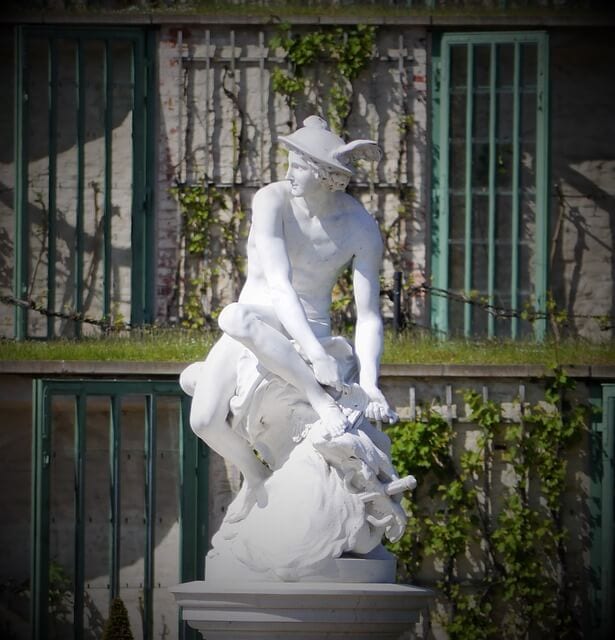
Hermes is depicted as one of the most intelligent and mischievous of the Olympian gods. He was the herald and messenger of Mt. Olympus, and his winged sandals made it possible for him to move easily between the realms of gods and mortals. He is also seen as a spirit guide – one who conducts souls into the afterlife.
His symbols include:
- Lyre
- Caduceus
- Tortoise
12. Hephaistos (Roman name: Vulcan/Volcanus)
God of fire, crafts, blacksmiths and metalworking
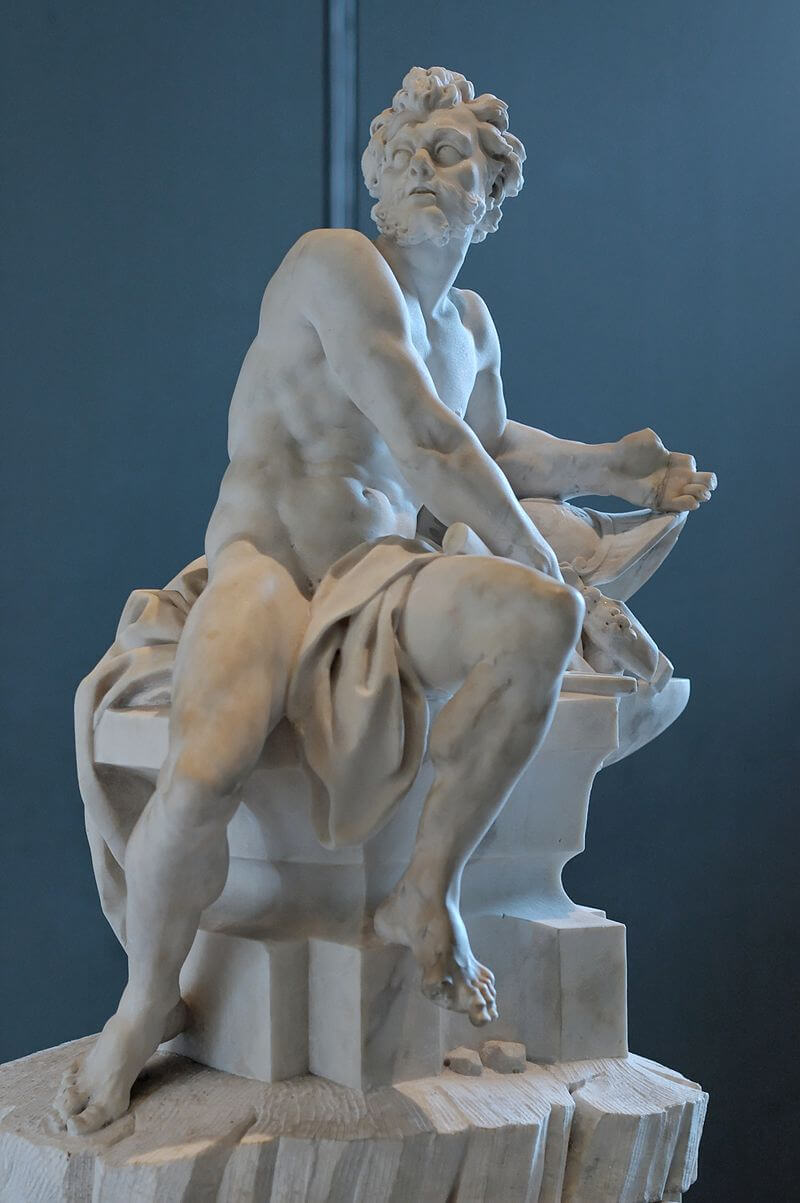
Hephaistos was the blacksmith of the Olympian gods, creating all their weapons for them. He stands out as being the only god with a disability and thus considered ‘less than perfect’. Hephaistos was worshipped by those involved in manufacturing and industry, especially in Athens.
His symbols include:
- Hammer
- Anvil
- Tongs
- Volcano
Here’s a list of other important gods, sometimes included in the list of the 12 Olympian gods.
13. Hestia (Roman name: Vesta)
Goddess of home, virginity, family and the hearth
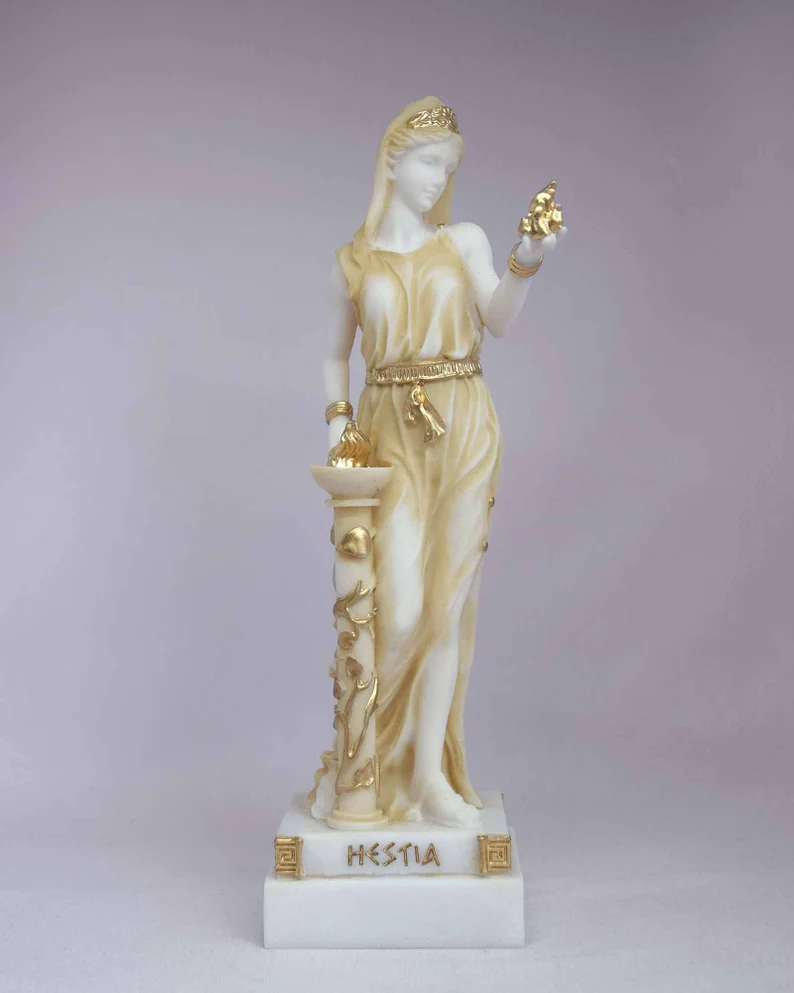
Hestia was a highly important god, and symbolized domestic life among other things. She was given the first offering of every sacrifice and whenever a new Grecian colony was founded, flames from Hestia’s public hearth would be carried to the new colony.
Her symbols include:
- Hearth and fire
14. Leto (Roman name: Latona)
Goddess of motherhood
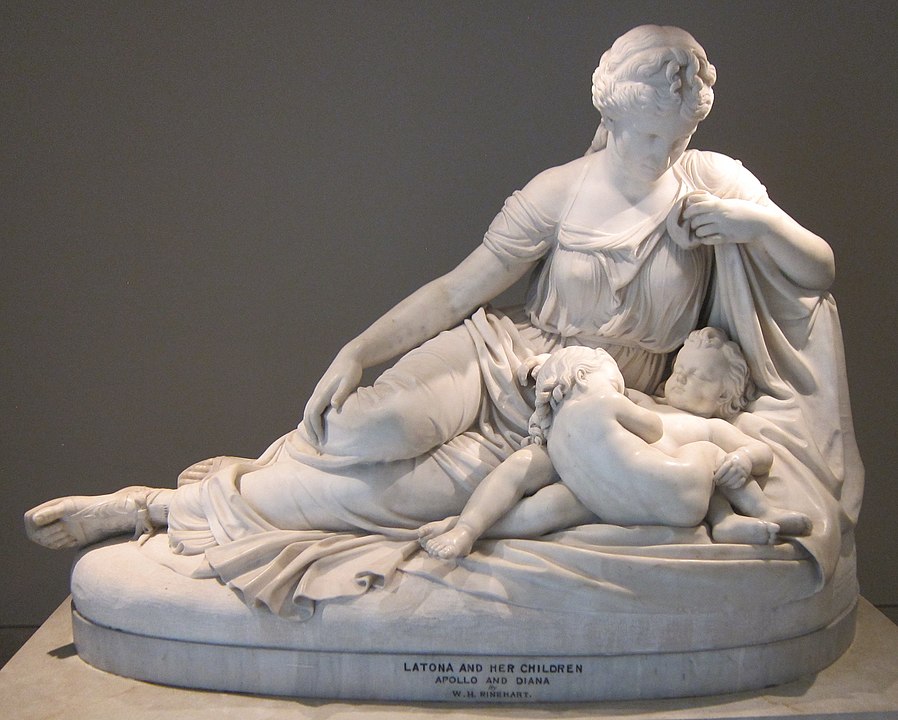
Leto is a mysterious figure in Greek mythology, with not much mentioned about her. She is the mother of twins Apollo and Artemis, conceived after her beauty attracted the attention of Zeus.
Her symbols include:
- Veil
- Dates
- Weasel
- Rooster
- Gryphon
15. Heracles (Roman name: Hercules)
God of heroes and strength

Hercules is the most popular of the Greek mythological figures, known for his strength, fortitude, endurance, and many adventures. He is a semi-divine being, with a mortal mother and was among the most human of the gods, with trials and tribulations that mortals could relate to.
His symbols include:
- Club
- Bow and arrow
- Nemean lion




